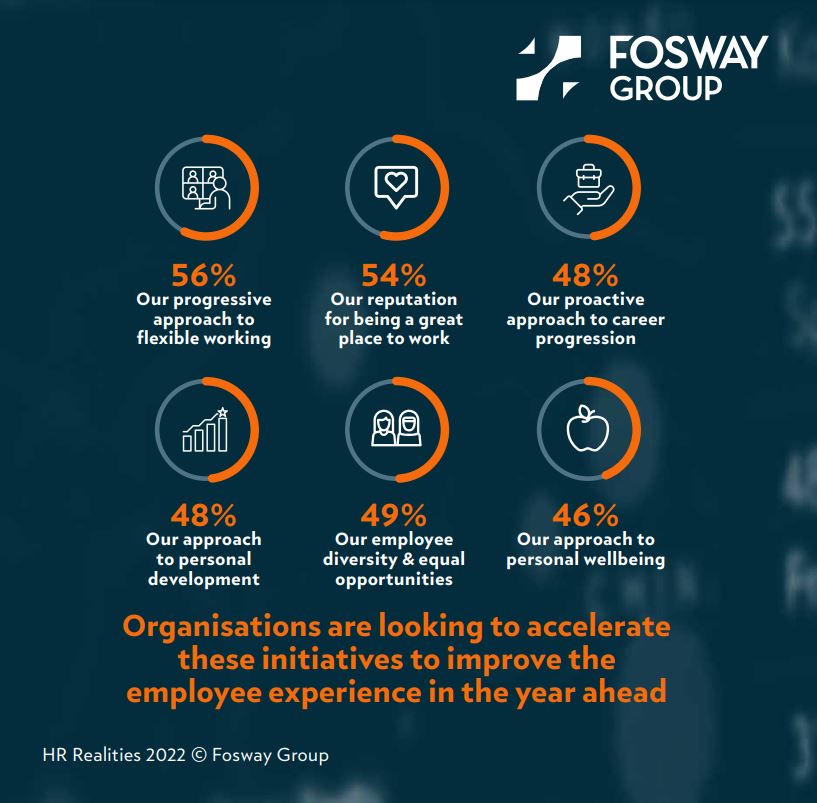
HR says talent shortages are the most significant business challenge
Talent shortages are becoming more of a challenge to business success as organisations continue to struggle to cope with the fallout from the pandemic, the impact of digital transformation, changing demographics, climate instability and sustainability, and strengthening economic headwinds. Fosway Group, Europe’s #1 HR industry analyst, in partnership with UNLEASH, today launches its HR Realities 2022 research which reveals the biggest HR challenges facing employers as well as insights on HR strategy, technology and innovation.
With 95% of respondents seeing the availability of talent as their most significant business challenge, the research shows that HR priorities have realigned to address skills shortages. This year, reskilling and upskilling, employee retention, and facilitating digital transformation have surged up HR’s strategic priority list compared to 2021.
Skills challenges have elevated strategic workforce planning as a lever for HR success. Respondents say the most important factors for the future success of HR teams are leadership and people management (68%), change management (64%), business consulting (45%), coaching (44%) and strategic workforce planning (42%). The research shows a shift to more of an influencing approach by HR as business consulting and coaching overtake business partnering, moving from 4th in 2021 to 10th place this year.
David Perring, director of research at Fosway Group, said, "Skills really are the number one game in town, according to this year's HR Realities Research. Not only are they key to solving the shortage of available talent, they are also critical for the employee experience. HR teams also see skills development as the number one initiative to help futureproof the organisation. But are HR solutions able to live up to expectations of a modern employee experience?"
For the first time since the research began in 2014, employee experience is now seen as the top driver for HR's future success, followed by HR data, employer brand and values, the integration of HR and business systems and strategic influencing. HR teams report they have C-Suite backing to improve the employee experience, with 65% saying they have complete or significant support, and only 8% saying they don't have buy-in.
However, the research shows there is a long way to go to deliver on this, with only 17% of HR teams describing their employee experience as irresistible.
"It's very fashionable in HR to use the 'experience' label," said David Wilson, CEO Fosway Group. "But what does it mean really? This research shows creating a great employee experience remains a huge challenge for employers because it is so much more than simply creating a great user experience for HR systems. That is important but so are all the other human factors that drive the experience."
The research reveals that HR teams are looking to improve the employee experience through several initiatives, including a progressive approach to flexible working (56%), building a reputation for being a great place to work (54%), employee diversity and equal opportunities (49%) and a proactive approach to career progression (48%).
But, with only one in four HR teams thinking their HR solutions can deliver the employee experience they want for their workers, delivering a high-quality employee experience remains a significant challenge. Solution choices are becoming more complex which makes creating a joined up experience across the employee lifecycle more difficult.
Research for Fosway’s 2022 HR Realities was carried out between June and October 2021, with input from 311 HR professionals including chief HR officers, HR directors, Talent and L&D Directors, HR managers and technologists.
A full copy of the infographic is available to download from the Fosway website here.


